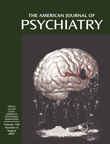The Power of Feelings: Personal Meaning in Psychoanalysis, Gender, and Culture
Nancy Chodorow is a practicing psychoanalyst and a professor of sociology at the University of California, Berkeley. Her writing has enriched many fields, including but not at all limited to feminism and the study of gender. I had looked at Chodorow’s The Reproduction of Mothering(1) many years ago and, more recently, while studying gender and sexuality, was referred by a colleague to Chodorow’s article, “Heterosexuality as a Compromise Formation” (2); I found that so refreshing, useful at many levels, and relatively free of reductionism, that I promptly began to look for other things Chodorow has published.
She has in her career leaned back and forth between the individual and the general, the psychoanalytic and the cultural, usually with a highly educated “both-and” stance. Her current book, The Power of Feelings, is a creative addition to our psychosocial education. Any psychiatrist reasonably interested in whole biopsychosocial people ought to be at least somewhat educated in psychoanalysis, sociology, and anthropology, yet few of us have the energy to keep up with all that. Where to begin? How to keep up? For many psychiatrists, psychologists, and social workers, Chodorow is an efficient entrance into, and a good reviewer of, some of these areas and their interactions.
The Power of Feelings may strike some conservative analysts as eccentric, because anthropologically informed analytic writing has not been a major recent tradition, and perhaps because Chodorow does not pay balanced historical survey attention to all the usual major players and schools in 20th-century psychoanalysis. I think in The Power of Feelings she builds particularly on Loewald, Erikson, Klein, and Winnicott, in addition to Freud, and she reminds us of, or introduces us to, Mead, Benedict, Lewis, Bateson, Roheim, Kardiner, Geertz, Lutz, and Rosaldo.
Chodorow begins by calling her book “a contribution to our understanding of individual subjectivity. It is an argument for the existence of an irreducible realm of psychological life in which we create unconscious personal meaning in the experiential immediacy of the present.” “Meaning as we experience it comes always both from without and from within.” “Neither the intrapsychic nor the interpersonal past on the one hand, nor the culturally given, on the other, fully determines meaning and experience.” “I am quite critical of the cultural determinisms found in much academic social science.”
Part 1 of the book, with much attention to transference, projection, introjection, and fantasy, puts forth a reading of psychoanalysis as “a theory of personal meaning of the power of feelings expressed and created in the clinical encounter.” It includes a chapter on the anxieties and tensions of combining present and past. Part 2 “brings this reading to bear on questions of gender.” She argues that “feelings and categories of gender and self are created both culturally, in historicized, socially specific contexts, and at the same time biographically, through individually specific projective and introjective fantasy and emotion.” “Each person’s sense of gender is an individual creation.” “Feminism recognizes differences but it defines them politically.” “Like much of academic psychology, and virtually all of popular psychology, the psychoanalytic literature has tended to overgeneralize, to oppose all men to all women.” “A first challenge for psychoanalysts…must be to assume that gender and sexuality are as interesting and new as everything else we observe clinically and theorize about.” “All the gender identifications and fantasies I describe are both cultural and personal.”
Part 3 leaves gender behind and takes on considerations of culture and psyche more broadly. Part 4 returns to part 1 with attempts at a broad synthesis, paying attention to current academic skepticism about broad syntheses and grand theory. Chodorow is helpful and complex about synthesizing, and pointedly wary of both purely clinical explanations and universalist claims.
The book is not without some occasional redundancy, but overall it is psychologically and socioculturally adventurous and efficient. Chodorow enriches what she touches.
1. Chodorow NJ: The Reproduction of Mothering. Berkeley, University of California Press, 1978Google Scholar
2. Chodorow NJ: Heterosexuality as a compromise formation. Psychoanalysis and Contemporary Thought 1992; 50:287-304Google Scholar



